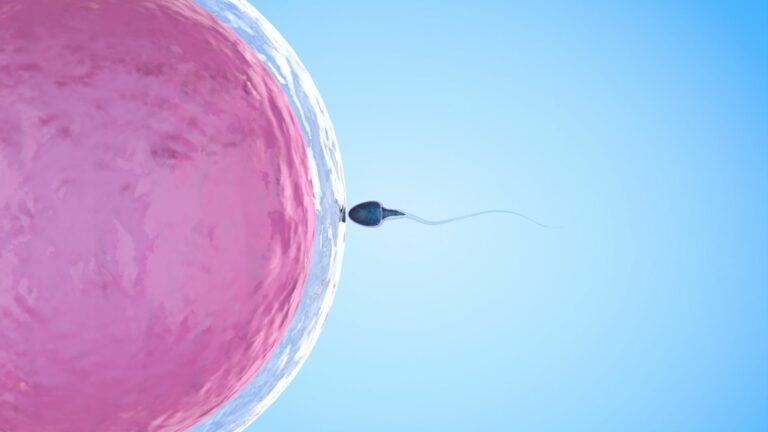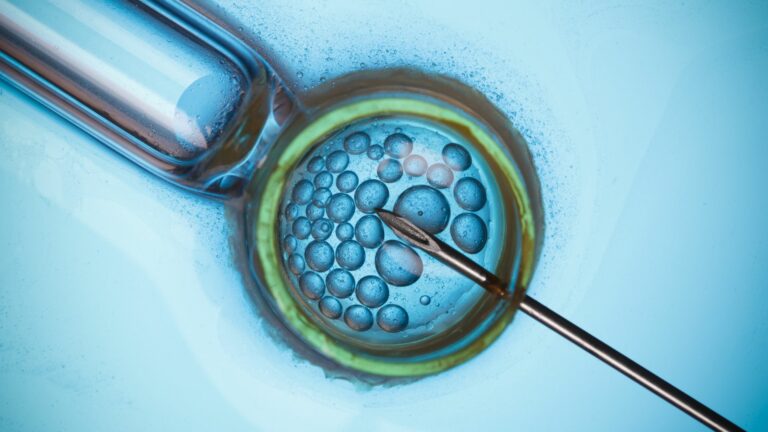
When confronting cancer, the immediate focus is on survival. Yet, many women of reproductive age must also contend with how their fertility might be affected by treatments like chemotherapy, radiation, or surgery.
For women dreaming of motherhood, exploring fertility preservation options in India becomes a pivotal part of the cancer journey.
This guide provides a comprehensive look at what awaits women with a cancer history who are considering In Vitro Fertilization (IVF) as a path to parenthood.
Key Concerns for Women with a History of Cancer
Navigating the waters of fertility and IVF after enduring cancer involves confronting specific medical and emotional considerations.
This section dives deep into these aspects, providing a supportive guide for women in India and beyond.
Cancer Recurrence Risk and Fertility Treatments
One of the most pressing concerns for cancer survivors is the risk of recurrence triggered by hormonal treatments used in IVF.
The ovarian stimulation in IVF involves elevating estrogen levels, which can potentially influence hormone-sensitive tumors. Here are the crucial points:
- Research Overview: Most studies indicate that IVF does not significantly elevate the risk of cancer recurrence. However, the scenario varies based on cancer type, notably in hormone-sensitive cancers such as certain breast cancers.
- Navigating Treatment: It is critical to discuss your cancer history and potential risks with both your oncologist and a reproductive specialist. For hormone-sensitive cancers, alternatives like using minimal stimulation protocols or letrozole may be safer options.
The Impact of Age and Cancer Treatment on Fertility
Cancer treatments are notorious for their aggressive assault not only on cancer cells but also on fertility. Here, age plays a crucial role in determining the aftermath:
- Natural Fertility Decline: Women’s fertility naturally declines with age, but cancer treatments may accelerate this process.
- Effects of Treatment: Chemotherapy drugs, notably alkylating agents, and pelvic radiation can drastically reduce ovarian reserve. Surgery may involve removal of reproductive organs, immediately impacting fertility.
Understanding Specific Treatment Impacts on Fertility
Understanding the specific impacts of your cancer treatment is crucial for planning post-treatment fertility strategies:
- Chemotherapy: Drugs like cyclophosphamide can cause ovarian failure. The risk varies with dosage and your age during treatment.
- Radiation: Direct pelvic radiation is most harmful. Techniques to shield the ovaries during treatment can reduce risk.
- Surgery: Surgical removal of ovaries or the uterus directly affects reproductive capabilities.
Navigating the Emotional and Social Aspects
The journey through cancer to fertility treatment is fraught with emotional and social challenges. Discussing these openly with your family and peers is often therapeutic and can be guided by resources on talking to family about IVF.
Spiritual and cultural considerations also play a crucial role in this personal journey, especially in a diverse cultural landscape like India. More on these aspects can be explored through IVF religious considerations in India.
Next Steps:
This part of our comprehensive guide has outlined the primary concerns and medical implications of IVF for cancer survivors.
Subsequent sections will delve into detailed fertility preservation options, risks associated with IVF post-cancer, and emotional support systems, including IVF support groups in India that can provide community understanding and support.
Fertility Preservation Options After Cancer Treatment
Once a woman has completed cancer treatment, the focus often shifts to her hopes for motherhood. Here are fertility preservation options and avenues that can pave a hopeful path toward parenthood.
Early and Immediate Options for Fertility Preservation
Even before starting cancer treatment, discussing fertility preservation with healthcare providers is crucial. Here are some options that might be considered:
- Embryo Cryopreservation: This is the most established method of fertility preservation. It involves stimulating the ovaries to produce multiple eggs, retrieving these eggs, fertilizing them in the lab with partner or donor sperm, and freezing the embryos for future use.
- Oocyte Cryopreservation (Egg Freezing): Similar to embryo freezing but involves freezing unfertilized eggs. This option is suitable for those who might not have a current partner or who prefer not to use donor sperm at the time of preservation.
Innovative and Experimental Techniques
Science continues to advance, offering new hopes:
- Ovarian Tissue Cryopreservation: Considered experimental, this technique involves freezing ovarian tissue before cancer treatment, which can later be re-implanted to restore fertility.
- Ovarian Suppression: Some studies suggest that the use of drugs to suppress ovarian function during chemotherapy might protect the ovaries, although this is still under investigation.
Each option comes with its nuances, benefits, and considerations, which should be discussed in-depth with a fertility specialist.
Exploring the options available can help ensure that steps taken before cancer treatment don’t preclude the joys of parenthood later on.
Post-Treatment Fertility Options
After the completion of cancer treatment, several strategies can help realize the dream of parenthood:
- Using Preserved Eggs or Embryos: If eggs or embryos were preserved before treatment, IVF can be performed to achieve pregnancy.
- IVF with Donor Eggs: If ovarian reserve is compromised and no eggs were preserved, using donor eggs with IVF is a viable option.
Addressing Male Partner Fertility
It’s also essential to consider the fertility of a male partner, especially if the couple wishes to use their genetic material.
Discussions about male infertility and IVF, and specific treatments like ICSI for azoospermia are crucial.
Emotional and Psychological Support
Coping with IVF and Its Failures
Dealing with IVF can be emotionally taxing, and not all attempts may result in success. Understanding and preparing for potential outcomes is crucial, and resources such as those discussing coping with IVF failure can be extremely helpful.
Mental Health and IVF
The psychological impact of IVF is immense. It’s important for both individuals and couples to manage their mental health during this process.
Information on IVF and the mental health impact on partners can provide valuable insights for maintaining a healthy relationship during these trying times.
Building Strong Support Networks
No journey should be walked alone. Engaging with IVF support groups in India can provide not just support but also valuable experiences from those who tread a similar path. Managing stress is also crucial, as detailed in resources about IVF stress management.
Navigating IVF after Cancer Treatment
Understanding the specifics and navigating the practicalities of IVF after cancer treatment is crucial.
Evaluating IVF Feasibility and Safety
Post-cancer, it’s imperative to assess the safety of undergoing IVF:
- Consulting Specialists: A combined discussion with your oncologist and a reproductive endocrinologist can provide a tailored approach, ensuring that IVF does not adversely affect your health post-cancer.
- Tailored IVF Protocols: For survivors of hormone-sensitive cancers, protocols that minimize hormone exposure (such as natural cycle IVF or mild stimulation IVF) can be considered.
Choosing the Right IVF Center
Selecting an IVF center with the right expertise is essential:
- Specialized Care: Look for centers specialized in handling cases of cancer survivors. They are more likely to understand the nuances of your medical history and provide customized care.
- Location Specific Centers: Considering the emotional and physical demands of IVF, choosing a center that is geographically convenient can help reduce stress. You may start by exploring options like IVF centers in Tiruchirappalli, IVF centers in Bhubaneswar, IVF centers in Salem, IVF centers in Mira Bhayander, and IVF centers in Thiruvananthapuram.
Legal and Ethical Considerations
Understand the legal and ethical aspects related to IVF procedures in India, especially relating to donor gametes and surrogacy.
Post-IVF Considerations and Parenthood
Pregnancy and Health Monitoring
Once IVF is successful, careful monitoring during pregnancy is crucial, especially for cancer survivors:
- High-Risk Pregnancy Care: Ensure that you’re under the care of an obstetrician familiar with your health history.
- Continued Oncology Support: Regular follow-ups with your oncologist throughout the pregnancy to monitor for any health issues that may arise.
Preparing for Parenthood
Transitioning into parenthood after cancer and IVF comes with its unique set of challenges and joys:
- Emotional Preparedness: Engage in counseling if needed to address any fears or anxieties about parenthood post-cancer.
- Physical Health: Continue with prescribed health regimens to keep yourself in the best shape for your new role as a parent.
Conclusion: Embracing Hope and New Beginnings
Embarking on the journey of IVF post-cancer treatment symbolizes hope and resilience. By understanding the intricacies of the process and preparing for the emotional and physical demands, you set the stage for moving forward with confidence and support.
Parenthood after cancer is not just a dream—it’s a possible new beginning, empowered by medical science, emotional resilience, and community support.






